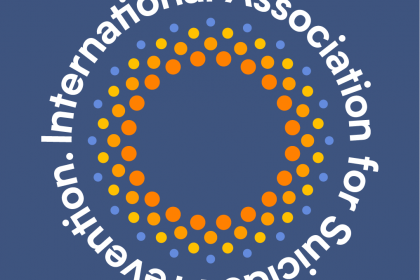My day began with the Special Lecture 4. I was interested to hear about the interplay between the pandemic’s challenges and our resilience. The first lecture was presented by Prof. Vita Poštuvan who started the presentation with a provocative question of whether we all panicked unnecessarily, or should we still be concerned?
The COVID-19 pandemic fundamentally changed our daily lives. Restrictions to contain the spread of the virus were recognized as risk factors for mental health. There were many fears that suicide rates would also increase due to these changes. However, epidemiologic data to date have shown no significant short-term increase in suicide rates. On the contrary, in some places there was even a decrease in suicide rates during the pandemic. Concerns remain, however, especially in high-risk groups. Long-term consequences may be more significant because of increased loneliness, the impact of COVID infections, and other changes.
Longitudinal measures of mental health showed that the increase in mental health symptoms was largest among studies in the early stages of the pandemic (March-April). However, the severity of mental health symptoms decreased significantly over the following months (May-July), indicating an acute response followed by psychological adaptation and resilience.
Written by:

Lucia Rojs
Slovene Centre for Suicide Reseach, University of Primorska
Prof. Poštuvan also touched on the topic of media reporting during the pandemic which has also played a role, potentially creating fear and copy-cat effects. It’s crucial to address these complex factors as we navigate the challenges and lessons of the COVID-19 pandemic. As we reflect on these findings, it’s evident that the pandemic has brought mental health challenges to the forefront. While challenges remain, resilience and adaptability have shone through.
The next presentation was given by Dr Alexandra Pitman on the relationship between loneliness and suicide prevention. We took a closer look at the construct of loneliness and its connection with suicide-related outcomes. She identified loneliness as a pivotal target for reducing the risk of suicide, sparking a paradigm shift in our approach to mental health. To prevent suicide effectively, we must address the underlying issue of loneliness, recognizing the profound role that human connection plays in our well-being. The message was clear: battling loneliness is not a solitary endeavor but a collective responsibility. Communities, healthcare providers, and policymakers must unite to create environments that nurture meaningful social connections.
Next I joined the Oral #19 on The Law and ethics in suicide prevention, where Prof. Mark Goldblatt, Prof. Reinhard Lindner and Assoc. Prof. PD Dr. Nestor Kapusta presented a case study- Ms. G., diagnosed with metastatic breast cancer at a young age. Her journey involved aggressive treatments, psycho-oncological therapy, and an agonizing descent into acute suicidal thoughts that necessitated inpatient hospitalization. The lecture began by acknowledging the profound challenges that come with the end-of-life experience, particularly for individuals dealing with severe medical conditions and, at times, psychiatric illnesses. One striking aspect that caught my attention was the intense dysphoric states that patients may experience when confronting their own mortality. It’s a reminder that the human psyche navigates a complex terrain when confronted with the harsh reality of impending death. One of the most striking aspects of this lecture was the therapist’s ethical dilemma. How could he foster an emotionally significant connection while simultaneously amplifying the pain of confronting imminent death? Ms. G.’s journey reminded me of the profound impact of psychotherapy on the human soul, even in the most challenging of circumstances.
The scientific part of my day drew to a close with that. The congress continued for another day and extended on Saturday for the Slovenian community. The main theme of this year’s congress was ‘The Power of Togetherness,’ and it serves as a powerful reminder that when we unite our knowledge, compassion, and efforts, we have the potential to make a significant impact, foster hope, and create a world where suicide is no longer a silent crisis. This conference has been an amazing opportunity to meet new people, socialize, and exchange ideas. Thank you IASP, can’t wait for the next one.
SPONSORED BY






